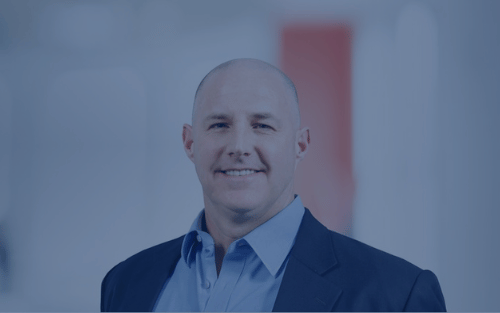Leadership is hard, but some make it look easy. Jeff Melton is one of those people. He’s our COO and has become a legend at the company for his unique coaching style. So, after hearing yet another one of our team members rave about his methods, we knew that we had to share this knowledge.
(This was a conversation, that has been lightly edited for flow.)
Q: Jeff. Your meetings are famous for how much people learn from you. Yet, you talk very little during these meetings. What’s the story here?
JM: I learned this while at Bain Capital, which I joined, well.. many years ago now. (Laughs)
Bain is famous for being a project-based, intense, fast-paced work environment. And because of the pressure to meet deadlines, that naturally causes leaders to be highly directive.
That would often manifest itself as feedback that was focused on fixing a problem but not a cause.
A superior would receive Powerpoint slides, get out the red pen, and give direct feedback... 'Change this, fix this. Now, go back and execute.’
After a while, it started to strike me as the wrong mentality. It caused people to work unsustainably hard, and would cause people to devote 110% of their effort into maximising work quality.
In an apprenticeship situation, you might think that the best way to maximise quality is for the senior person to do the work only they know how to do, and leave the apprentice to do the rest. But this means they’re not testing themselves on new challenges, and they’re not learning things.
So after seeing this happen for years, I realised that we needed a new definition of success for a project:
Everyone should leave a project more capable of success in their next one.
Yes, they need to learn something and develop skills. But they also need to finish a project with the emotional and physical wellbeing to go into the next project, even more eager and optimistic. We want that person to feel more engaged than ever before.
Q: Sounds.. difficult
JM: (Laughs) Well. It wasn’t easy.
One day I woke up and realised that I should be focused on doing the work where I could have the highest impact.
And if you think about it, it’s not going to be by jumping in at the end of a project with prescriptive feedback.
This meant that I had to make two major changes to how I worked.
First, I tried to engage a lot earlier in the work input of my team.
There is a failure pattern in which a subordinate spends so much time working on something that they become wedded to the minor choices made. Some of them may be wrong, and some of them may not be quite the best, but if a project is too far down the road, it’s hard to give good feedback.
So, we’d work in a collaborative way. I’d try to sit on the same side as the table with my team, thinking with them, collaborating with them, and improving things together.
Second, I tried to change the way I give feedback.
I had to really force myself to avoid leaping into giving feedback, and instead turn that into a process of finding the best question.
This is quite hard when you’re time-pressured, as you just want to give a response.
Q: But how would you know what is the best question to ask? What was the question designed to do?
JM: The first thing I learned to accept was that it doesn’t have to be the best question. Just about ANY question is helpful, as it triggers a conversation.
The second thing was taking the perspective of being genuinely interested in the other person’s thinking. When you’re under pressure it's hard to really slow down and listen, but it was important.
My goal is to get someone talking - and really talking - not from a position where they feel a threat or critique, but where they are invited to a collaborative, constructive conversation.
What I found was that if I was actually interested in learning from my team, they were able to come up with unique, great ideas.
Q. How would you set expectations?
JM: Well, there are some things that you have to say out loud.
I would tell the team that I want to see their output early, not late.
I was also explicit in communicating that I want to achieve mind-meld with them, that my goal is to be on the same side of the table as them. My goal is always to get to the point where they’ve understood the project so deeply and are executing so well, that I don’t even need to look at the finished product.
Q. In meetings, even when people directly ask you for feedback, you will still often pause and then come back with a question. I’m sure that not everyone embraces this...
JM: Yeah, I do get negative feedback sometimes about this, but I try to be comfortable with uncertainty.
So, I have made a habit of keeping a question open for longer than other people want to keep it open.
I’ve got the willingness to conclude a conversation without an answer and ask someone to think about the problem a bit more.
Of course, when the deadline is tomorrow, people want direction. And at that point, there might be a moment a judgment call needs to be made to just pull the trigger and make the decision.
But, I try to bias on the side of doing it too late, instead of doing it too early. I try to teach them to swim, but I wouldn’t grab them until they were under the water. For someone to really learn how to solve a problem for themselves, this is what you have to do.
Q. Yep. I’d imagine that there would be some people who recognise what you’re doing and embrace it, but there’d be others who don’t ever quite get there. And in terms of working on performance reviews and promotions, this would be a big thing you’d be looking at, right?
JM: Exactly.
Q. Got it. Do you have any resources you’d recommend to people who are looking to learn more about this?
JM: Yes, I have a couple of books to recommend.
Humble Inquiry – the Gentle Art of Asking Instead of Telling.
A More Beautiful Question by Warren Berger.
Trust Based Selling by Charles Green.
Q. Where does explicit teaching fit into this?
JM: Teaching people is important. Sometimes a little nudge in the right way can help, so every now and then I take the opportunity to teach something to my team – a mental model, a metaphor, OR a concept.
Q. Great. Thanks Jeff.
JM: My pleasure.







-min.png)
